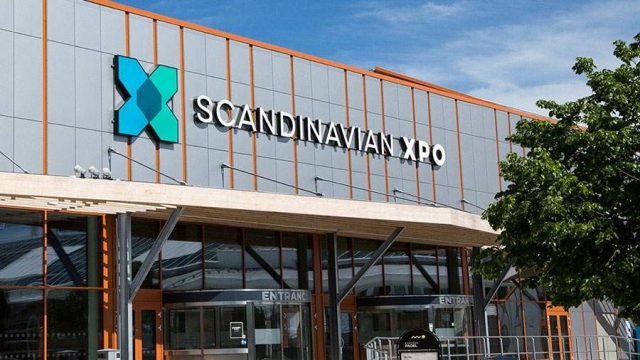
Several Swedish media criticize the government for not investing more resources in the ministerial meetings that will take place in Sweden during the country’s presidency.
Sweden is taking over the Presidency of the Council of the European Union from January 1-June 30, 2023.
The presidency begins with a lavishly summit meeting for all the commissioners north of the Arctic Circle, in the exotic Icehotel Jukkasjärvi, 18 kilometer outside the mining town of Kiruna.
But after this meeting in the north of Sweden in January, the EU’s top politicians have to content themselves with stopping at a place that is not mentioned in any travel guide.
Sweden has chosen a cheaper and less conspicuous meeting place in Stockholm: a congress hall close to Arlanda airport, among the locals called “the hangar”. The ministerial meetings that await will be held here.
Pro-EU complains
Swedish pro-EU press complains and argues that this makes Sweden’s presidency stand out. The country holding the presidency use to thrown open the gates of their most luxurious places, castles and historic manors.
Now all the European guests will meet in a convention center of about 40,000 square meters. It is located so close to the runways that you can hear the roar of the airplanes’ engines when they take off. Swedish journalists wrinkle on the noses and describe the building in which this convention center is located as a giant container.
Avoids traffic disruptions
EU skeptics are more pleased that many meetings will be held at the airport outside Stockholm, so that international motorcades do not block traffic for ordinary people’s journeys to and from work.
The biggest advantage of letting the EU’s ministers stay outside at Arlanda airport instead of in central Stockholm are the higher demands on security arrangements. Escorting the international dignitaries the short distance from the airport terminal to the congress hall requires considerably less resources than blocking the highway E4 towards the city. And then around buildings at densely trafficked streets.
Less spending in EU is for the better
Despite that, the Swedish journalistic profession is persistent in highlighting the embarrassment of not investing more money in the visits of Europe’s political establishment. In the media are officials from previous presidencies interviewed. They argue it as a missed chance to showcase Sweden. In addition, it can diplomatically be perceived as an invitation with the elbow.
In Brussels, Sweden is labeled as the union’s scrounger. Not least because Sweden is a member of the so-called “frugal four”, the quartet of countries that are critical of increasing the Union’s spending and prefer to issue loans instead of grants.
In line with that, Sweden recently dropped its vote in the vote on the EU budget. All other EU countries except Hungary voted yes. This is a result of a more skeptical Swedish people opinion of new federalist exempts to move more political power from the member states to Brussels. Sweden is already a large net payer to the European Union.
The presidency less important
Another argument against the generosity that the pro-EU media wants Sweden to show is that the presidency does not have the same importance as it used to. It has been downgraded. Now it is no longer the prime minister of the host country who led the council’s meetings. The member states democratically elected prime ministers have been replaced with a permanent chairman. The Belgian Charles Michel will chair the meetings of which the vast majority are held in Brussels, and this applies especially to high-level meetings.
The price tag for Sweden’s Presidency of the EU’s Council of Ministers during the spring of 2023 is set to be a total of SEK 1.25 billion (about 110 million euro).



 Subscribe
Subscribe